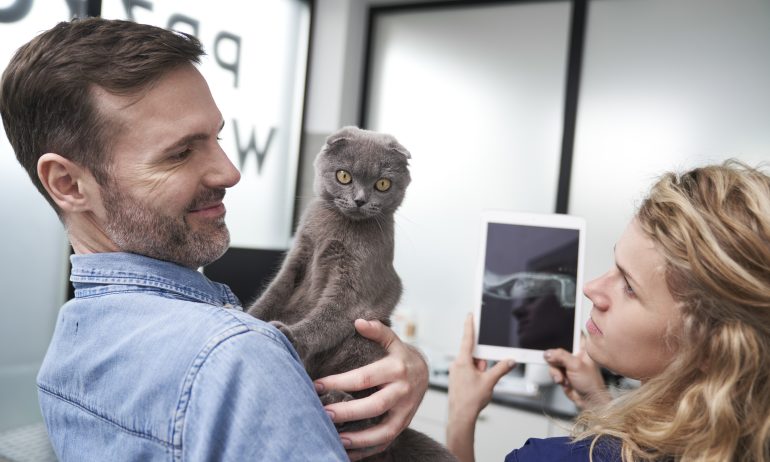Survey: Nearly One-Fourth of U.S. Pet Owners Insure Their Pets

Many, or all, of the products featured on this page are from our advertising partners who compensate us when you take certain actions on our website or click to take an action on their website. However, this does not influence our evaluations. Our opinions are our own. Here is a list of our partners and here's how we make money.
Our pets are our cute, lovable companions, and just like everyone else under our roof, they come with their share of expenses. However, unlike a roommate, you can’t expect your pet to help foot its share of the bills.
Of the two-thirds (67%) of Americans who are pet owners (defined as those who currently own a cat and/or dog), 24% have pet insurance, according to a new NerdWallet survey conducted online by The Harris Poll among 1,366 pet owners. Pet insurance may help with certain medical expenses, but it can be costly and may not be right for everyone.
Insurance is a tool to help insulate you from unexpected or large expenses. You insure your car in part because it’s legally required, but also because it’s typically more manageable to pay a few hundred dollars a month than it is to cover the higher costs of vehicle damage and injury after a serious accident. Likewise, you may insure valuable jewelry to protect yourself from financial loss if it is damaged or stolen.
Like these examples, pet insurance requires you to make regular payments, in the form of premiums, in exchange for the potential coverage of larger expenses. But also like these examples, the decision to sign up for pet insurance should come after careful consideration of your needs and coverage options.
Here are four times it may make sense to sign your furry friend up for coverage:
1. You anticipate your pet needing more than routine care
More than 2 in 5 pet owners (42%) with pet insurance say they have it because their pets often need care covered by their policy, according to the survey. If you anticipate ongoing covered expenses, the monthly premium of insurance coverage can help smooth your costs. Some breeds may be more prone to medical problems than others, for example, so look into the traits of your specific pet type when evaluating the potential costs of care.
However, pet insurance rarely covers pre-existing conditions. This means pet insurance probably won’t pay for ongoing kidney problems or cancer treatments, for instance, if your pet had those conditions before you got the policy. Also not likely covered: routine care and spay and neuter procedures, unless you pay extra for preventive care coverage.
For these reasons, budgeting for routine expenses is a good idea whether or not you get a pet insurance policy. Carefully read the details of any policy you’re considering to determine just how often you’re likely to file successful claims.
2. Your pet is accident-prone
Some pet insurance carriers offer accident-only coverage. Maybe your dog has a habit of getting loose and you’re worried about it getting hit by a car, or it tends to eat things it's not supposed to. If so, an accident policy could cover the emergent costs associated with these events. Accident-only pet insurance is generally cheaper than more comprehensive policies.
3. You can’t pay the covered expenses out of pocket
If you’re able to pay cash for the care your pet needs, buying insurance coverage may be unnecessary. You’re paying for the insurance service, not just the veterinary care. Ask yourself: If your dog needed an expensive procedure, could you afford to cover a few thousand dollars in surgery expenses? If so, insurance may not be a good value.
While 40% of pet owners with pet insurance have a policy to keep their costs down, having insurance doesn’t mean you won’t have any out-of-pocket expenses. Like human health insurance, pet insurance typically comes with deductibles and coverage limits. For example, with a $500 annual deductible, you’ll have to cover the first $500 of vet bills in the year before your insurance policy begins covering costs. And then, it may only pay a portion.
Bottom line: Read the policy details to find out what you’re truly getting in exchange for the premium. You may find it simpler and more cost-effective to build a separate emergency fund just for unexpected pet care expenses.
4. The peace of mind is worth the premium
Well over half (57%) of pet owners with pet insurance say they have it for “peace of mind,” making that the most commonly cited reason for having such a policy, according to the survey. The costs of pet care can be significant, and 13% of pet owners say those costs are a source of financial stress. If the thought of a big emergency vet bill makes you anxious, a monthly pet insurance premium may seem like a fair price to pay for a sense of financial and emotional security.





